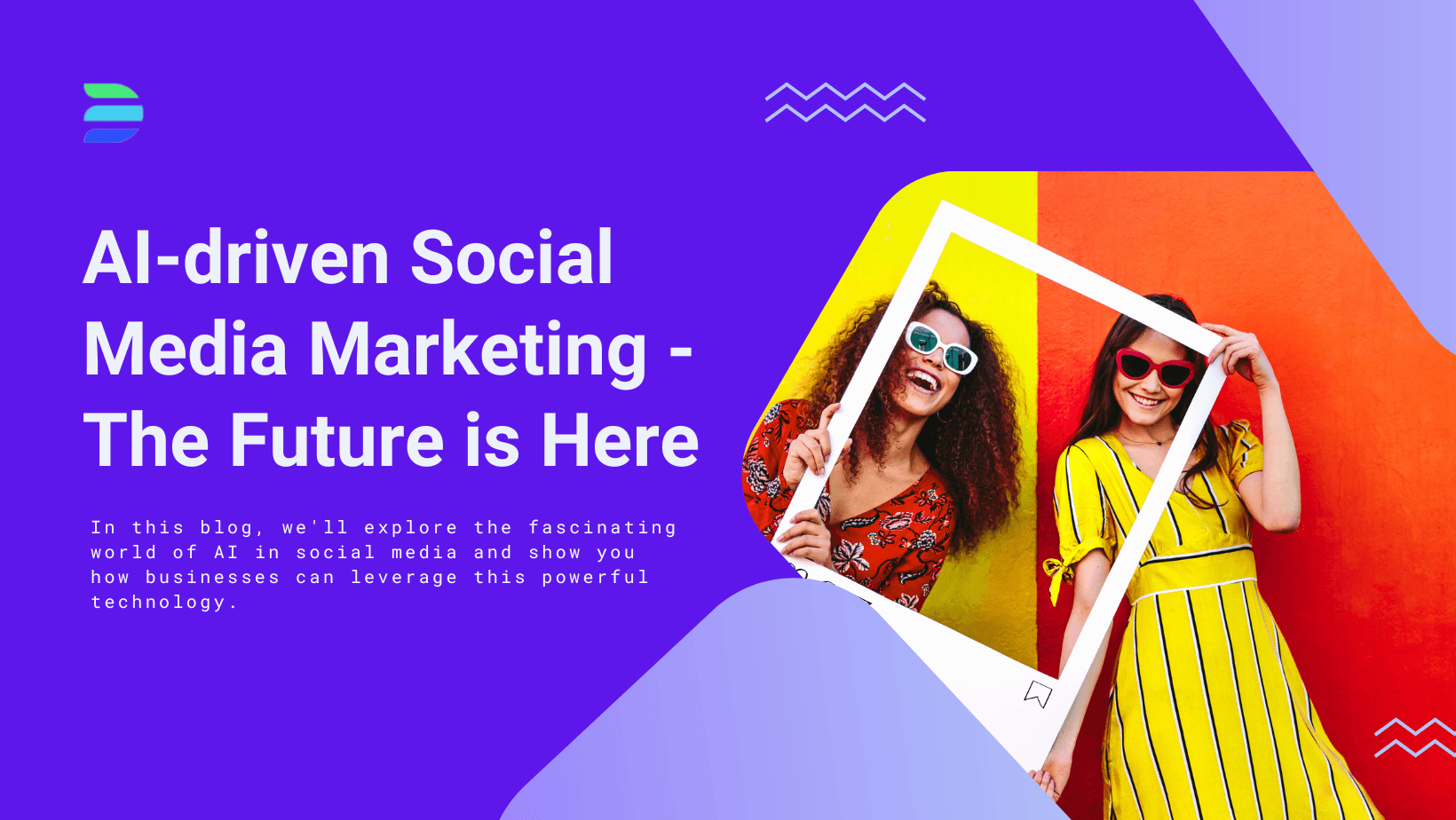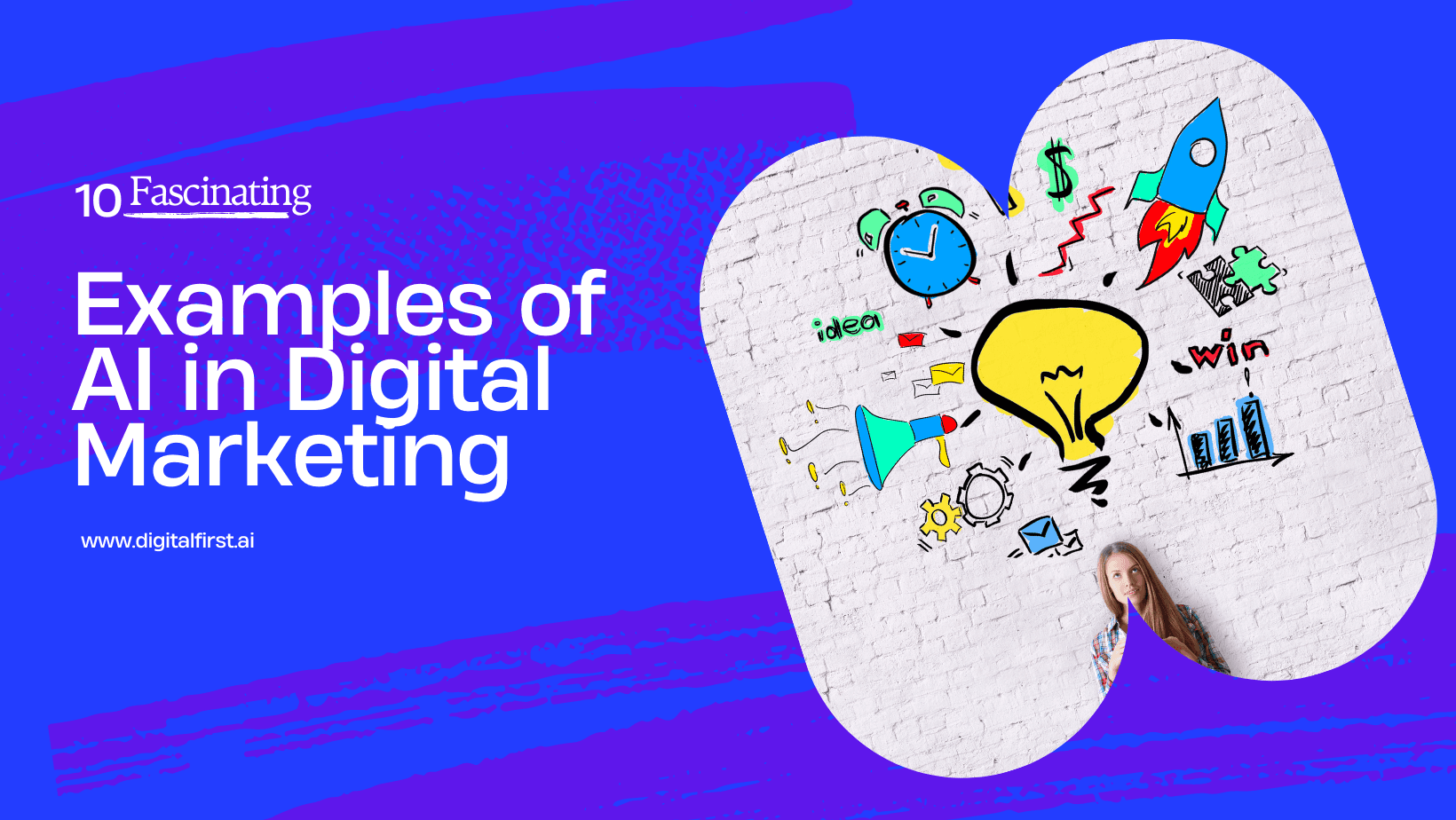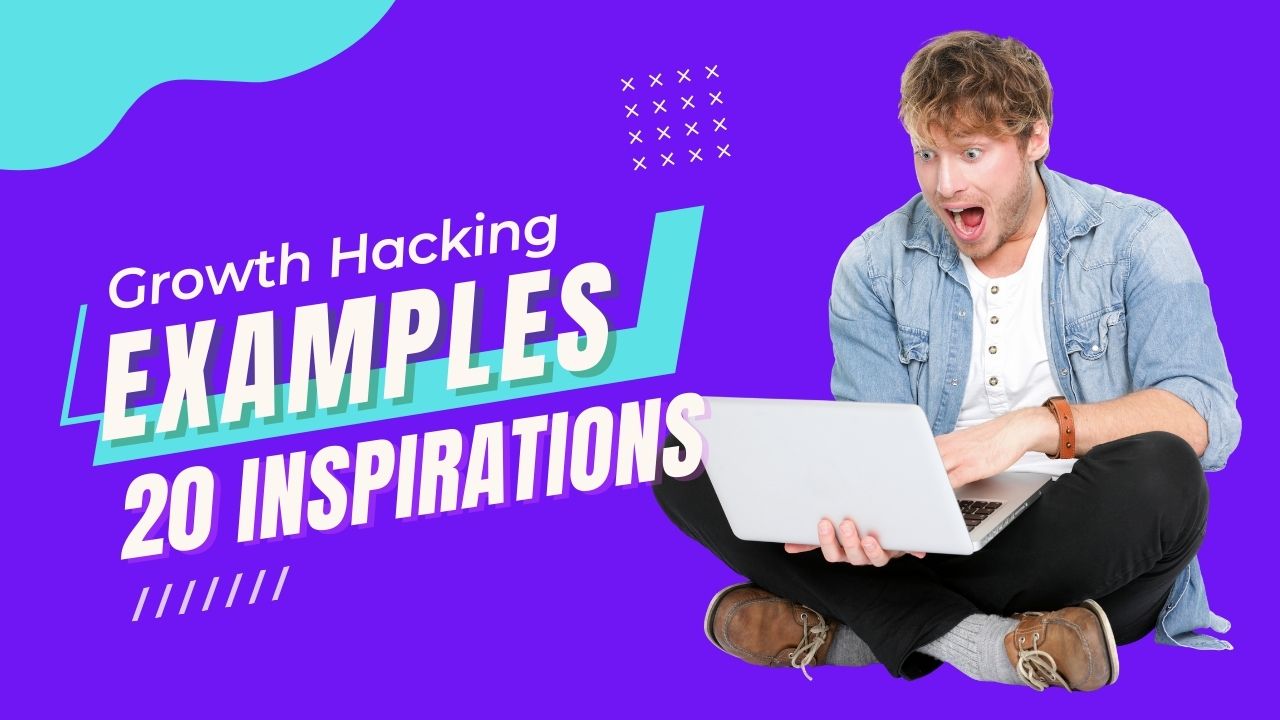AI-driven Social Media Marketing - The Future is Here
In this blog, we'll explore the fascinating world of AI in social media and show you how businesses can leverage this powerful technology to enhance their social media marketing efforts.
Sonu kalwar
Share:
Every day, there are millions of posts, tweets, stories, and videos being shared, liked, and commented on social media.
For businesses, the challenge is to stand out and reach their target audience effectively. This is where social media AI tools can help.
The potential of AI in social media is immense, and the market is expected to grow at a CAGR of 28.77% over the next 5 years. By 2023, the global AI in social media market is forecasted to reach $2.2 billion. Marketers who embrace AI are poised to reap the benefits of increased efficiency, better targeting, and higher engagement.

In this blog, we'll explore the fascinating world of AI in social media and show you how businesses can leverage this powerful technology to enhance their social media marketing efforts.
So, get ready for an exciting journey!
Try Digital First AI's Plug & Play AI-Powered Marketing Workflows Builder

No credit card needed. Instant access. Try now for free.
Benefits of Using AI in Social Media Marketing
Businesses are using artificial intelligence (AI) to improve their marketing and customer engagement on social media.
According to Rafal Tromczyński, CEO of Digital First AI, "AI's value is not in replacing humans, but in automating boring tasks and freeing up time for creative and strategic thinking."
This is where AI can help social media marketers most - by taking care of tedious tasks and allowing humans to focus on more creative and strategic work. Let’s explore some of the benefits of AI for social media marketers.
Saving time and resources
AI can help you save time and money, optimize your social media marketing campaigns, improve the quality of your marketing campaigns and make better decisions.
Let's take a look at some examples:
AI helps find out what your customers want by analyzing their behavior on different channels (websites, social media, etc.).
With AI-driven tools you can create personalized offers according to the individual needs and preferences of each customer group or even individual person!
The most exciting part is personalization will be automated so everything will happen automatically based on data collected from previous interactions with customers that may include any data points such as age range, location or purchase history, etc.
Improving accuracy and precision
AI can help marketers make better decisions faster.
Marketers are often faced with the challenge of making decisions in real time, even when they don't have all the information they need to make an informed decision.
AI is designed to work around these limitations by providing insights and recommendations based on past data or previous experiences allowing marketers to make an educated guess at what might happen next.
AI can also be used as an analytics tool that provides insight into customer behavior patterns across different channels, which helps marketers understand why certain campaigns are more successful than others and how their customers interact with them (i.e., whether someone views an ad but doesn't click through).
Enhancing customer experience
AI-enabled chatbots and virtual assistants are able to personalize content and recommendations, provide instant support, feedback, and guidance, and foster engagement and loyalty.
For example, AI-based chatbots are able to reduce the time it takes for a customer to get through and resolve their issue.
This is especially helpful for businesses that receive high volumes of inquiries from customers every day, such as airlines or banks.
It also ensures that customers get the best possible experience when dealing with their queries so they don't feel like they're being ignored or given subpar service just because there are too many people asking questions at once!
Streamlining marketing strategies
AI can help you identify the most effective channels and tactics, optimize budgets and resources, and stay ahead of the competition. By using AI to analyze your data, you'll be able to streamline your marketing strategy by identifying which channels are working best for you as well as which ones aren't. This allows you to spend more time on what works instead of wasting money on things that don't bring in any results.
AI also helps keep up with changing customer preferences for how they want content delivered (e-mail vs social media) or how long they're willing to wait before making a purchase decision (instant gratification vs research). The ability of brands to adapt quickly will be key to remaining competitive in today's market place where consumers have more choices than ever before.
Idea Generation
In recent years, social media marketing has become a crucial aspect of any successful marketing strategy. AI is now being used to enhance the effectiveness of social media marketing by providing real-time insights, automating tasks, and creating personalized content.
For example, the beauty brand, L’Oréal created and deployed the ‘Find the Perfect Fragrance’ bot that is accessible via Facebook Messenger, the bot recommends the best perfumes based on the qualities of the person receiving the gift.
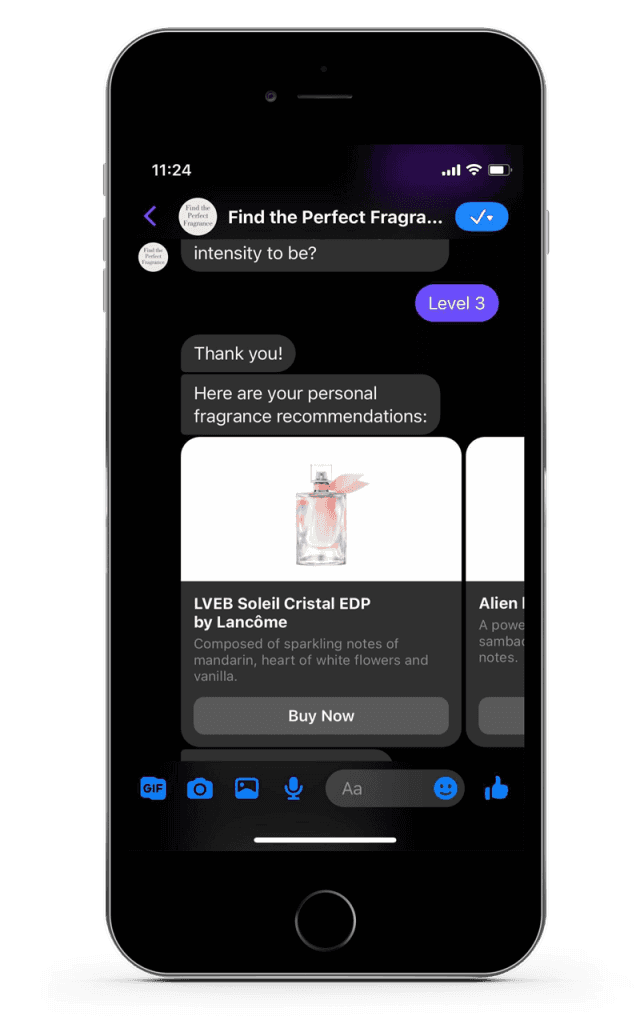
Another example is the luxury car brand, Mercedes-Benz, which used AI to analyze user-generated content on social media to create personalized ads tailored to each user's interests and preferences.
These are just a few examples of how AI is being used to revolutionize social media marketing, allowing brands to connect with their target audience in a more personalized and effective way.
Social Media Content Creation
Social media content creation using AI has revolutionized the way businesses approach digital marketing.
According to Mordor Intelligence, The AI market in social media is expected to reach $3,714.89 million by 2026, recording a CAGR of 28.77%. AI-powered content creation tools can generate high-quality content in a fraction of the time it would take a human to do the same.
For instance, MacPaw a software company that focuses on developing solutions for Mac improved their sales flow with the help of personalized video messages using AI. They use Elai.io API which helped them to generate videos that address each client personally from a single script.
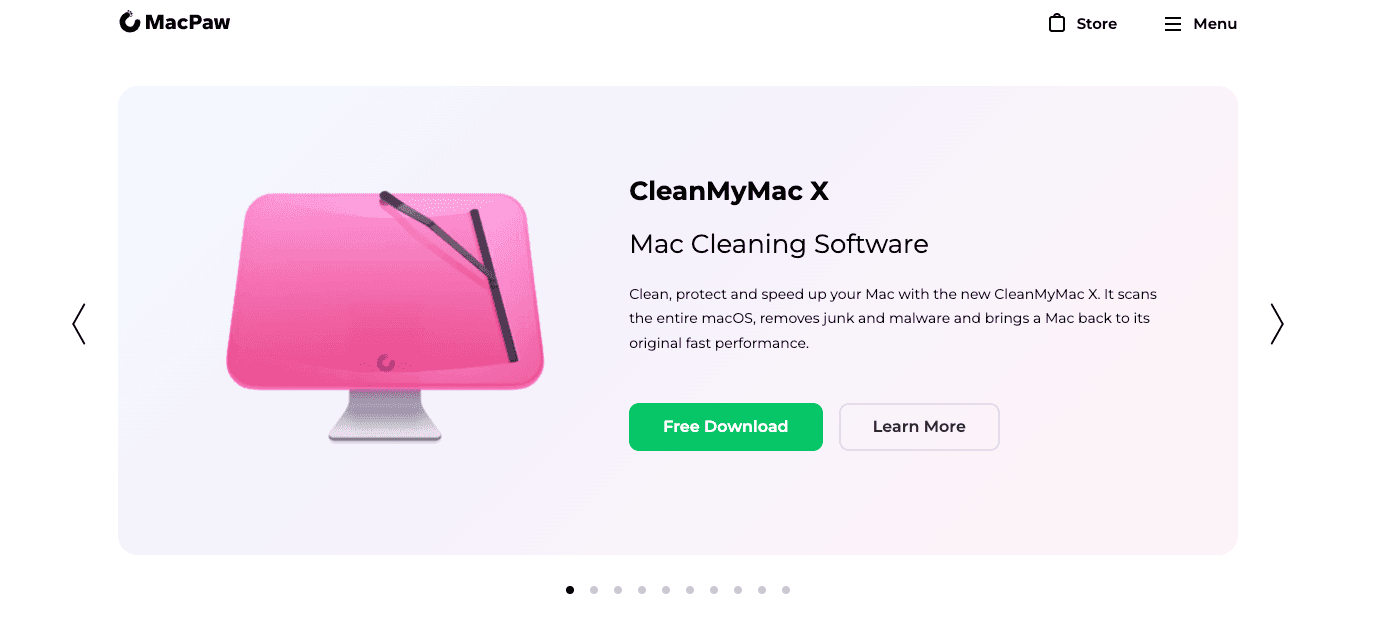
AI saved MacPaw hours of work spent on video production and helped them focus on delivering results.
Use cases of AI-generated content
AI-generated content has numerous use cases in social media marketing, including content generation, personalized product recommendations, automated chatbots, and targeted advertising. AI can also be used to create engaging visual content such as videos and images.
By leveraging the power of AI, businesses can achieve greater efficiency and effectiveness in their social media marketing strategies.
Use cases for Facebook Marketing
Generating content using AI for Facebook marketing has become increasingly popular among businesses. One example is using AI to create personalized product recommendations for customers based on their behavior on the platform.
Another example is using AI to generate chatbot conversations that can provide customer service and support, freeing up human resources. AI can also be used to analyze data and create targeted ad campaigns that are more likely to convert.
Additionally, AI can generate engaging text & visual content, such as ad copies, blogs, videos and images, that can help businesses stand out on the platform.
By using AI for content creation, businesses can improve their Facebook marketing strategy and achieve greater success.
Digital First AI for Facebook Marketing

Craft high-converting ad copy that captures your audience's attention and generates revenue quickly. The tool allows you to generate text for Facebook ads in mere seconds, giving you more time to focus on other aspects of your campaign.
Additionally, create visually appealing graphics for your Facebook profile or page in no time. Optimize your Facebook campaigns for success and watch as your business flourishes.
Try the Digital First AI Facebook ad generator today and take your advertising to new height
Use cases for Instagram
Businesses may effectively improve their social media presence by creating content utilizing AI for Instagram marketing. For each user, AI can produce customized information, such as targeted adverts and product recommendations.
Additionally, AI can be used to analyze user behavior and create content that is more likely to engage and convert users, such as visually striking images and videos. AI can also automate the process of responding to comments and direct messages, freeing up human resources. Instagram influencers can also use AI to optimize their content strategy by analyzing audience engagement and preferences.
By leveraging the power of AI, businesses and influencers alike can achieve greater success on the platform.
Digital First AI for Instagram Marketing
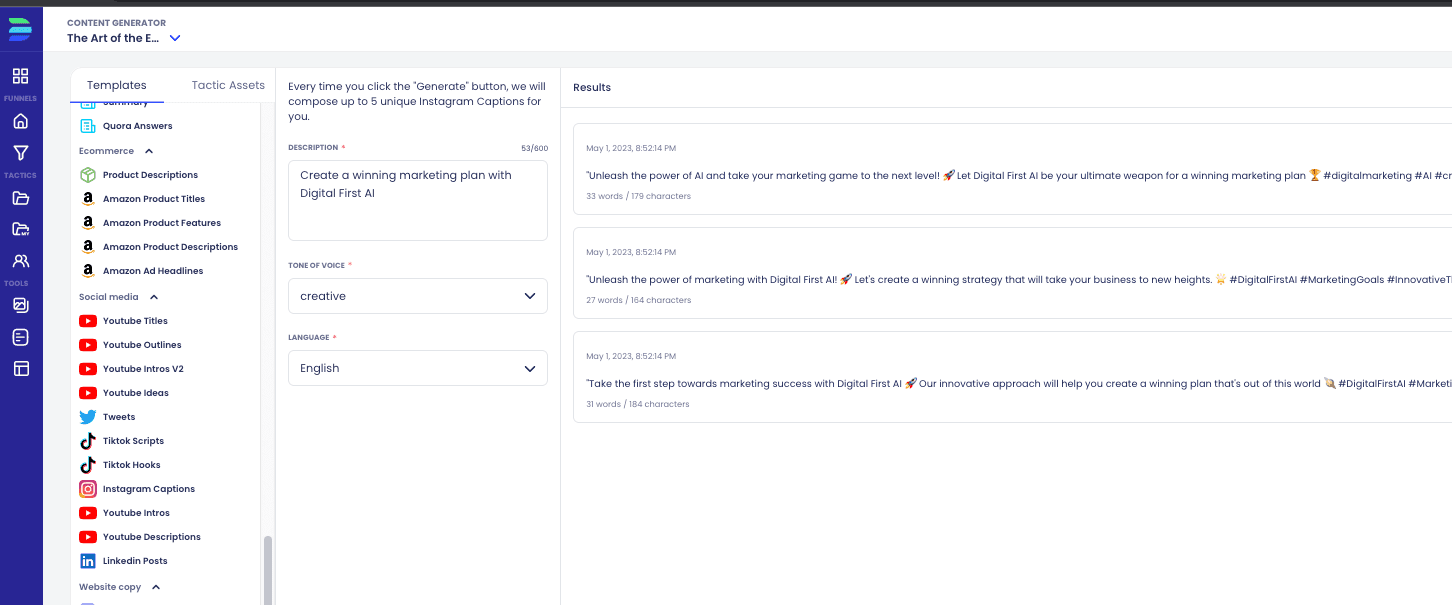
In mere seconds, craft captivating captions and hashtags that capture your followers' attention. Plus, take your Instagram profile to the next level with custom graphics created by Digital First AI’s social media graphics generator.
Use cases for Twitter
Generating content using AI for Twitter marketing can be a game-changer for businesses looking to streamline their social media strategy. With AI, businesses can analyze user behavior, interests, and trends to create personalized and engaging content.
For example, AI can create targeted ads and tweets that are more likely to resonate with users, increasing the chances of conversion. AI can also generate visually stunning graphics and infographics that help businesses stand out on the platform.
Plus, with the help of chatbots powered by AI, businesses can automate the process of responding to customer inquiries and support requests, creating a more efficient customer service experience. By incorporating AI into their Twitter marketing strategy, businesses can save time and resources while achieving greater success on the platform.
Digital First AI for Twitter Marketing

With this Digital First AI’s, marketers can create up to five unique tweets in just a few seconds, saving time and effort while still ensuring quality and relevance.
By leveraging AI-powered tools, marketers can stay ahead of the competition and deliver engaging content that resonates with their audience on Twitter.
Use cases for YouTube
As social media platforms continue to dominate the marketing world, businesses are looking for ways to stay ahead of the competition. One platform that has become increasingly popular in recent years is YouTube, which has over 2.1 billion to 2.6 billion monthly active. With so many users and so much content, it can be difficult for businesses to stand out.
That's where AI comes in. AI can help businesses optimize their YouTube presence in a number of ways, from improving video recommendations to analyzing audience behavior.
For example, AI can be used to identify trending topics and keywords for video titles and descriptions, ensuring that your content is relevant and discoverable. AI-powered video editing software can also be used to create visually stunning videos that captivate viewers.
PetroShore, a consulting and training company uses AI avatars to present the course and create the presentation of its key aspects, objectives, and advantages.

With Digital First AI’s, marketers can generate ideas, titles, outlines, intros, and descriptions for their videos in seconds.
This enables them to create engaging and relevant content that resonates with their target audience, ultimately driving views, engagement, and conversions.
Digital First AI help streamline the content creation process, enabling marketers to stay ahead of the curve and achieve their marketing goals on YouTube.
Use cases for LinkedIn
Artificial Intelligence (AI) can be the secret weapon for businesses looking to create high-quality content for LinkedIn marketing campaigns. Utilizing AI-generated content can save time and resources while providing a competitive edge to your marketing strategies. AI can help you create personalized messages that resonate with your target audience, in turn, increasing engagement and conversions.
Tibo Lous Lucas, the founder of Taplio, is able to create posts with the same tone and content as other LinkedIn profiles through the use of AI. By simply pasting the LinkedIn profile of the person you wish to replicate, this technology can generate posts that mirror their writing style.

Another example, LinkedIn's Sales Navigator uses AI to provide personalized insights and recommendations to sales representatives, enabling them to create impactful messages and build stronger connections with potential customers.
Furthermore, AI can help identify relevant keywords and hashtags that will improve the discoverability of your content. By automating tasks like scheduling and publishing, marketers can focus on creating high-quality and engaging content that resonates with their audience, leading to increased ROI and a successful LinkedIn marketing campaign.
Digital First AI for LinkedIn Marketing

With Digital First AI, marketers can quickly generate engaging LinkedIn content. With just a few clicks, it can generate ad headlines, descriptions, and even entire campaigns, saving time and effort.
By leveraging the power of AI, marketers can create more effective content that resonates with their target audience and drives results on the world's largest professional networking platform.
Use cases for TikTok
Generating content using AI for TikTok marketing is becoming increasingly popular due to the platform’s unique algorithm and growing user base. AI can help identify popular trends, hashtags, and content that is likely to go viral.
It can also analyze user behavior and preferences to create personalized content that resonates with the target audience.
For example, AI-powered tools like HypeAuditor or ByteSights can analyze user engagement levels and suggest content that is likely to perform well. Additionally, AI can help automate the content creation process, such as generating captions or suggesting music to accompany a video.
Overall, AI can be a valuable tool for businesses looking to create engaging and effective content for TikTok marketing.
Digital First AI for Tiktok Marketing
Generate attention-grabbing TikTok scripts and hooks with Digital First AI's TikTok script generator. Get up to five unique scripts in a matter of seconds, perfect for engaging your audience and growing your TikTok presence.

Personalization
Personalization in social media marketing has been revolutionized by the use of AI technology. With AI-powered algorithms, businesses can gather data on their customer's behavior, preferences, and interests, allowing them to create targeted and personalized social media campaigns.
For example, the online retailer ASOS uses AI to personalize their social media ads based on a customer's browsing history and purchase behavior. This strategy has resulted in a 300% increase in click-through rates and a 200% increase in conversions.

Similarly, the beauty brand L'Oreal partnered with AI company ModiFace to create a personalized virtual try-on experience for their customers, increasing engagement and sales.
The use of AI in personalization has proven to be a game-changer in social media marketing, providing businesses with a competitive edge and improving customer satisfaction.
Use case of Personalization
Personalization in social media marketing using AI has become a popular strategy for consumer businesses to create targeted, personalized campaigns that resonate with their audience.
For example, the online retailer Etsy uses AI to recommend products to their customers based on their browsing and purchase history, resulting in a 10% increase in sales.
Another example is the fast-food chain Domino's, which uses AI to create personalized social media ads that target customers in specific locations with customized promotions. This approach has resulted in a 6% increase in sales and a 13% increase in customer engagement.
Similarly, the fashion retailer H&M uses AI to create personalized digital catalogs for their customers, resulting in a 22% increase in sales. These examples demonstrate the power of AI in personalization, helping consumer businesses to improve customer engagement, loyalty, and sales.
Social Listening
Edible sources are an essential aspect of our daily lives, and gathering information and statistics about them is crucial for making informed decisions. Artificial intelligence (AI) has proven to be an invaluable tool in social listening, allowing us to analyze vast amounts of data from online sources such as social media and blogs.
Use cases of social listening
AI-powered social listening has enabled consumer businesses to gain valuable insights into their customers' behavior, preferences, and opinions. One unique example is the luxury fashion brand Burberry, which uses AI to analyze customer feedback and improve the personalization of its products and services.

By monitoring social media conversations and analyzing customer data, Burberry has been able to create more targeted marketing campaigns and improve its customer engagement.
Another example is the pet food brand Chewy, which uses AI to monitor customer feedback and identify opportunities to improve its products and services, resulting in increased customer loyalty. These unique use cases demonstrate the potential of AI in social listening to help businesses improve their competitiveness and customer satisfaction.
Sentiment Analysis
Sentiment analysis using AI has become increasingly popular in social media marketing, with many businesses leveraging this technology to gain valuable insights about their customers.
For example, the fast-food chain Wendy's uses AI-powered sentiment analysis to monitor customer feedback and identify areas for improvement in its products and services. The tool allows Wendy's to track mentions of their brand on social media platforms and analyze the sentiment of these mentions to understand customer perception better.
Use cases of sentiment analysis
AI-powered sentiment analysis tools enable businesses to monitor and analyze social media conversations to identify positive, negative, or neutral sentiments about their brand.
For instance, the fashion retailer ASOS, which uses AI-powered sentiment analysis to monitor customer feedback and identify popular trends, helping them to create more targeted marketing campaigns.
Optimization of Paid Media
Optimization for paid social media marketing is crucial for businesses to maximize their return on investment. Generative AI is increasingly being used in optimization to help businesses create more effective ads and target the right audience.
Use cases of paid media optimization
Paid social media optimization with AI is an effective way for consumer businesses to reach their target audience and increase conversions. For example, the e-commerce platform Wayfair uses AI-powered optimization to create personalized ads for its customers.
The tool analyzes customer behavior and identifies the products that are most likely to interest them, resulting in higher conversion rates.
Another example is the meal-kit delivery service HelloFresh, which uses AI-powered optimization to improve its social media ad targeting and reduce ad spend. The tool analyzes customer data to identify the most effective targeting parameters, resulting in more cost-effective social media ad campaigns.
These examples demonstrate how paid social media optimization with AI can help consumer businesses improve their targeting and increase conversions, ultimately leading to increased revenue.
Reporting & Analytics
Reporting and analytics for social media marketing are crucial for businesses to understand the effectiveness of their campaigns and make data-driven decisions. AI is increasingly being used in reporting and analytics to provide more accurate and actionable insights.
Use cases of reporting & analytics
By leveraging the power of AI, businesses can gain valuable insights into their social media performance, improve their targeting, and ultimately drive sales.
For instance, the beauty brand Glossier uses AI-powered analytics to stay ahead of the competition by tracking its social media performance and identifying trends in customer behavior.
With these insights, they can make data-driven decisions about their social media strategy and create content that resonates with their target audience. Similarly, the online retailer ASOS uses AI-powered analytics to identify trends in customer behavior and provide personalized product recommendations.
By leveraging AI-powered analytics, businesses can optimize their social media strategy and stay ahead in the game!
Customer Service
Customer service is a crucial aspect of social media marketing, and generative AI is transforming the way businesses interact with their customers. By leveraging AI-powered chatbots, businesses can provide 24/7 support and respond to customer queries in real time.
For example, the online retailer Zulily uses AI-powered chatbots to provide personalized customer support and improve their customer experience. The chatbots use natural language processing to understand customer queries and provide relevant responses, reducing the need for human intervention.
Use cases of AI-powered customer service
Consumer businesses are leveraging AI-powered customer services to provide efficient and effective solutions to their customers.
For instance, insurance companies are using AI-powered chatbots to provide customers with instant assistance in filing claims and answering policy-related questions. Retail businesses are using AI-powered chatbots and virtual assistants to help customers with product recommendations, order tracking, and personalized shopping experiences.
Additionally, travel and hospitality businesses are using AI-powered chatbots to help customers with booking and reservation-related queries, making the process faster and hassle-free.
Overall, AI-powered customer services are enabling businesses to provide high-quality customer service, reduce response times, and improve customer satisfaction.
Automation
Social media marketing automation using AI is transforming the way businesses interact with their customers on social media platforms. AI is being used to automate tasks such as content creation, scheduling, and posting, freeing up time for marketers to focus on strategy and analysis.
Use cases of AI-powered automation
Canadian airline, WestJet, uses AI-powered chatbots to handle customer inquiries and provide real-time flight information.
Another example is the furniture retailer, Wayfair, which uses AI to analyze customer data and run remarketing ads on social media.
These examples demonstrate how social media automation with AI can improve customer engagement, increase efficiency, and provide valuable insights for consumer businesses.
AI for social media marketers
AI is becoming an increasingly important tool for social media marketers to streamline their workflows and improve the effectiveness of their campaigns. AI can be used to automate tasks such as content creation, scheduling, and posting, freeing up time for marketers to focus on strategy and analysis.
Additionally, AI can be used to analyze customer data and provide valuable insights on audience behavior and preferences, allowing marketers to create more targeted and personalized campaigns.
Social media management platforms such as Digital First AI, Hootsuite and Sprout Social are already incorporating AI-powered features to help marketers optimize their social media strategies. With the ever-increasing amount of data available on social media platforms, AI is set to become an essential tool for social media marketers going forward.
AI for social media marketing agencies
Social media marketing agencies can leverage AI to streamline their workflows, optimize their campaigns, and gain valuable insights into customer behavior. For example, AI-powered tools like Adext can automatically optimize ad campaigns by analyzing data and making real-time adjustments to targeting and ad spending.
TBWA, a global advertising agency, leverages AI content generators to create assets and products for a number of their clients such as Nissan and Corona. According to Williams, AI is a component of the current "creative revolution" which has the potential to encourage teams and clients to approach things from a fresh perspective.
AI for small to mid-size businesses
Small to mid-sized businesses can leverage AI to improve their daily workflows, increase efficiency, and gain a competitive edge in their industry. For example, AI-powered chatbots can provide 24/7 customer service, freeing up staff time and reducing overhead costs.
AI can also be used to automate routine tasks, such as data entry and invoicing, allowing business owners to focus on more strategic initiatives.
Additionally, AI-powered analytics tools can provide valuable insights into customer behavior, enabling businesses to make data-driven decisions and optimize their marketing efforts.
As AI technology continues to develop, it is becoming increasingly accessible to small and mid-sized businesses, providing them with the tools they need to thrive in a rapidly changing marketplace.
According to Cierra Lueck, the founder of cierralueckconsulting, writing content for her company used to consume hours of her time and leave her feeling mentally exhausted at the end of each day. However, with the help of a generative AI tool, she no longer experiences the stress of content creation. Now, she can effortlessly produce captivating content for her social media platforms in a matter of seconds.
5 Key Considerations for AI in Social Media Content Creation
Accuracy
AI relies on data to make decisions, so it's important to ensure that the data you're using is accurate and of high quality. Otherwise, the insights you get from AI might be flawed or inaccurate. Additionally, relying too heavily on AI can lead to a loss of human intuition and creativity in decision-making.
Bias
AI is only as unbiased as the data it's trained on. If the data contains biases or reflects societal inequalities, the AI will also exhibit these biases. This can lead to unintended consequences, such as reinforcing discriminatory practices or excluding certain groups of people from marketing efforts.
Privacy concerns
AI requires access to personal data to work effectively. As a marketer, it's important to be transparent with customers about what data you're collecting and how it will be used. Failure to do so can lead to privacy concerns and erode customer trust.
Lack of context
AI is great at analyzing data and making predictions, but it may not always take into account the broader context of a situation. For example, an AI-powered chatbot may not be able to understand the nuances of a customer's question and provide an appropriate response.
Human oversight
While AI can automate many tasks and streamline processes, it's important to have human oversight to ensure that the AI is making the right decisions. Over-reliance on AI can lead to errors or unintended consequences, and having a human in the loop can help catch these issues before they become bigger problems.
Build Marketing Workflows That Work for you

No credit card needed. Instant access. Try now for free
Digital First AI empowers marketers with AI-driven tools to centralize data, build personalized strategies, and execute campaigns seamlessly.
Generate content, automate workflows, and outpace competitors—all in one secure platform.
AI-Powered Data Room: Centralize and analyze unstructured data for actionable insights.
AI Strategy Canvases: Generate 26+ strategic canvases for tailored campaigns.
Advanced Research Tools: Conduct real-time market and competitor research.
AI Content & Visuals: Create high-quality copy and visuals with leading AI models.
Drag-and-Drop Workflow Builder: Design and automate custom workflows effortlessly.
Pre-Built Templates: Jumpstart campaigns with customizable templates.
Over 15,000 marketers and entrepreneurs from around the world are already reaping the benefits. Enjoy a free trial without any commitments!

